 Specul-active Data Modeling B-TU Cottbus 2018 This seminar will deal with theoretical and practical aspects of digital simulation. We will be looking at the way simulations function epistemically and heuristically in technical and scientific contexts and in the general public. Specul-active Data Modeling B-TU Cottbus 2018 This seminar will deal with theoretical and practical aspects of digital simulation. We will be looking at the way simulations function epistemically and heuristically in technical and scientific contexts and in the general public. |
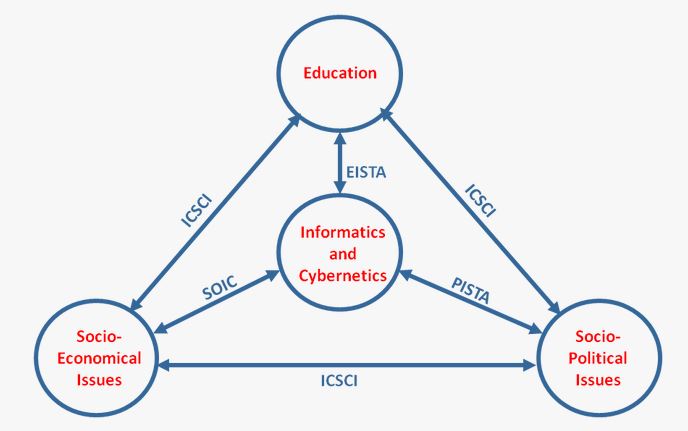 Cyber-Aesthetic Methods UdK Berlin 2018 How can we develop own methodologies towards strategies for networked aesthetics with social cybernetic feedback effects available today? In the seminar, we will look at ideas, motivations and different ways of engaging with the new fluid and malleable notions of reality Cyber-Aesthetic Methods UdK Berlin 2018 How can we develop own methodologies towards strategies for networked aesthetics with social cybernetic feedback effects available today? In the seminar, we will look at ideas, motivations and different ways of engaging with the new fluid and malleable notions of reality |
 Exquisite Complexity UdK Berlin 2017-18 The world is complex. The words, the images, the sounds we use to express our experience of this complexity are never quite adequate. One is pushed to generalize and simplify to get a desired reaction, rather than taking the time to convey complex impressions and thoughts more carefully and satisfactorily. But not in this seminar. In this seminar we will try to develop strategies and practices to help us patiently encounter complexity in all its lush and difficult detail. We will not shy away from slow progress, in fact we will celebrate it. Exquisite Complexity UdK Berlin 2017-18 The world is complex. The words, the images, the sounds we use to express our experience of this complexity are never quite adequate. One is pushed to generalize and simplify to get a desired reaction, rather than taking the time to convey complex impressions and thoughts more carefully and satisfactorily. But not in this seminar. In this seminar we will try to develop strategies and practices to help us patiently encounter complexity in all its lush and difficult detail. We will not shy away from slow progress, in fact we will celebrate it. |
 Digital Materiality Exhibition and UdK Berlin 2017 Digital technologies and processes are increasingly integrated in all aspects of our lives, they open up new realms of experience and questions about who and what we are. In this seminar we will analyze digital technologies from their material properties to help grasp what they are, how they are changing us and, perhaps how we can change them. We will reference thinkers from Aristotle and Plato through Marx, Kant, Descartes up to present day with Karen Barad, Katheryn Hayles and Bernard Stiegler. We will explore the ever diversifying, discipline-melting realms of creative digital practices, which may be art, design, propaganda, engineering, and all at once. We will discuss, research and prepare small presentations for each other, as we attempt to synthesize our understanding in texts, performances and objects. Digital Materiality Exhibition and UdK Berlin 2017 Digital technologies and processes are increasingly integrated in all aspects of our lives, they open up new realms of experience and questions about who and what we are. In this seminar we will analyze digital technologies from their material properties to help grasp what they are, how they are changing us and, perhaps how we can change them. We will reference thinkers from Aristotle and Plato through Marx, Kant, Descartes up to present day with Karen Barad, Katheryn Hayles and Bernard Stiegler. We will explore the ever diversifying, discipline-melting realms of creative digital practices, which may be art, design, propaganda, engineering, and all at once. We will discuss, research and prepare small presentations for each other, as we attempt to synthesize our understanding in texts, performances and objects. |
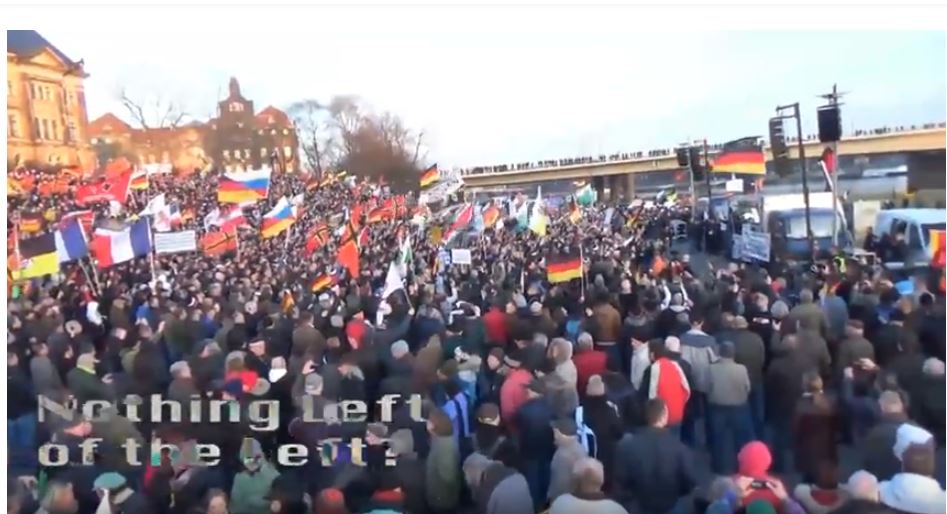 Resistence, Insistence, Subsistencewith Franziska Wildt - UdK Berlin 2017 Kann Kunst durch die Veränderung von Sichtweisen, politische Diskurse transformieren und Menschen zusammen bringen? Dieser Workshop möchte untersuchen welche kulturellen Praktiken den Aufstieg der politischen Rechten in Deutschland und dem Rest der Welt heute etwas entgegensetzen können. Wie können wir den Erfolg von rechtem Populismus, und die Macht der kulturindustriellen Beeinflussung durch Medienplattformen wie Youtube, Facebook, Instagram etc. unterlaufen? Welche kulturellen Praktiken können die politische Handlungsfähigkeit einer, zunehmend durch elektronische Geräte atomisierten und parzellierte Gesellschaft, wieder ermöglichen? Resistence, Insistence, Subsistencewith Franziska Wildt - UdK Berlin 2017 Kann Kunst durch die Veränderung von Sichtweisen, politische Diskurse transformieren und Menschen zusammen bringen? Dieser Workshop möchte untersuchen welche kulturellen Praktiken den Aufstieg der politischen Rechten in Deutschland und dem Rest der Welt heute etwas entgegensetzen können. Wie können wir den Erfolg von rechtem Populismus, und die Macht der kulturindustriellen Beeinflussung durch Medienplattformen wie Youtube, Facebook, Instagram etc. unterlaufen? Welche kulturellen Praktiken können die politische Handlungsfähigkeit einer, zunehmend durch elektronische Geräte atomisierten und parzellierte Gesellschaft, wieder ermöglichen? |
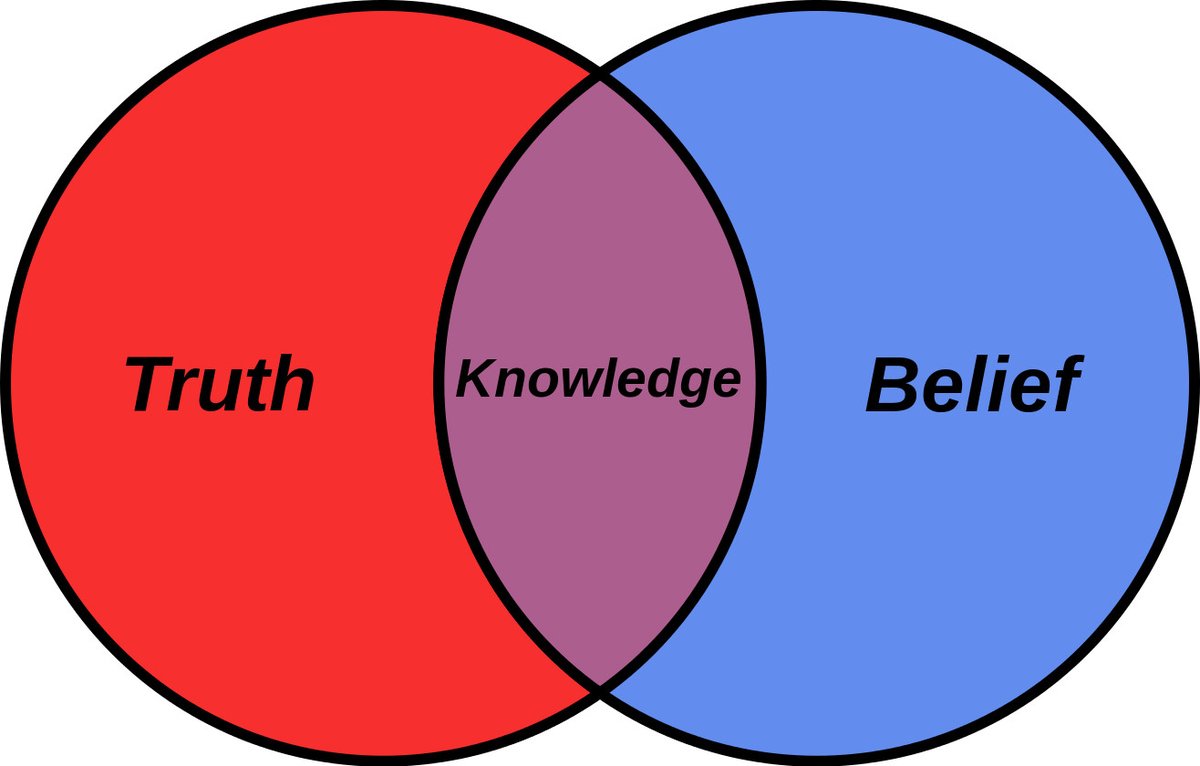 Data, Knowledge, Narrative UdK Berlin 2016-17 We look carefully at digital data, what it is made of, where it comes from, how it is produced and reproduced. We will look at our own data, others' data and data of things and processes. And we discuss and explore together how we make meaning of data and data environments, through metaphors, narratives, polemics and other cultural strategies. For hints we will look at Vilém Flusser’s notions of code, technical images, and synthetic thinking, media archaeology, net art and post-internet art, and more recent thinkers like Benjamin Bratton, N. Katherine Hayles, Elisabeth Gross and Elisabeth von Samsonow and many more. Data, Knowledge, Narrative UdK Berlin 2016-17 We look carefully at digital data, what it is made of, where it comes from, how it is produced and reproduced. We will look at our own data, others' data and data of things and processes. And we discuss and explore together how we make meaning of data and data environments, through metaphors, narratives, polemics and other cultural strategies. For hints we will look at Vilém Flusser’s notions of code, technical images, and synthetic thinking, media archaeology, net art and post-internet art, and more recent thinkers like Benjamin Bratton, N. Katherine Hayles, Elisabeth Gross and Elisabeth von Samsonow and many more. |
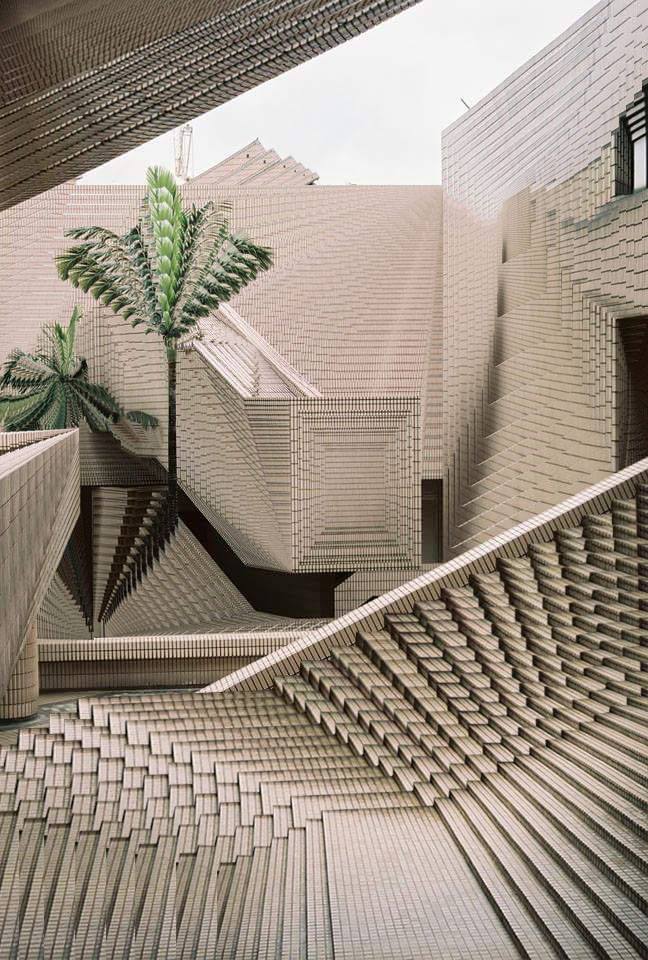 Digital MaterialityUdK Berlin 2016 By now we know, digital things are material things. There is no software without the hardware to run it. And concepts are also material, as they can only exist in living bodies. Increasingly artists, theorists, political actors are turning their attention to persistent materiality which underlies the electronic digital world.. Digital MaterialityUdK Berlin 2016 By now we know, digital things are material things. There is no software without the hardware to run it. And concepts are also material, as they can only exist in living bodies. Increasingly artists, theorists, political actors are turning their attention to persistent materiality which underlies the electronic digital world.. |
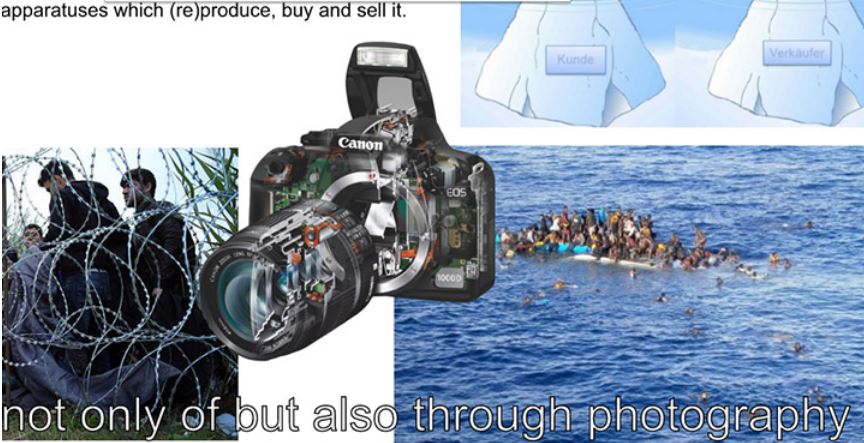 A Philosophy of Photography for the Freedom Of The Migrantwith Franziska Wildt - UdK Berlin 2016 In the essay collection „The Freedom Of The Migrant“, Flusser suggests that the migrant is free. What does this mean? The freedom of the migrant, according to Flusser, is not just a negative freedom from destruction or repression, it is a positive freedom to choose one’s affiliations and relationships with others independently of borders, class and nations. He turns the stigma of the migrant experience around, describing it as the quintessential contemporary experience in a world where our homes are perforated with „visible and invisible cables“. In the light of the current revival of nationalisms in Europe, Flusser’s ideas have renewed pertinence. Photographs, videos, „technical images“ as Flusser called them, greatly influence how we perceive the condition of the migrant today. The challenge for us is to understand and criticize the discourses inscribed in the images in order to dismantle their power A Philosophy of Photography for the Freedom Of The Migrantwith Franziska Wildt - UdK Berlin 2016 In the essay collection „The Freedom Of The Migrant“, Flusser suggests that the migrant is free. What does this mean? The freedom of the migrant, according to Flusser, is not just a negative freedom from destruction or repression, it is a positive freedom to choose one’s affiliations and relationships with others independently of borders, class and nations. He turns the stigma of the migrant experience around, describing it as the quintessential contemporary experience in a world where our homes are perforated with „visible and invisible cables“. In the light of the current revival of nationalisms in Europe, Flusser’s ideas have renewed pertinence. Photographs, videos, „technical images“ as Flusser called them, greatly influence how we perceive the condition of the migrant today. The challenge for us is to understand and criticize the discourses inscribed in the images in order to dismantle their power |
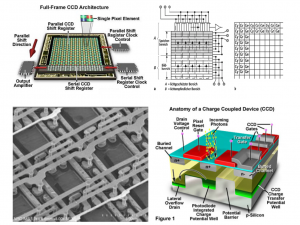 Digital MaterialityUdK Berlin 2015-16 Digital Art, Digital Communication, Digital Future, does it all sound old already? Increasingly artists, theorists and political actors are turning their attention to persistent materiality which underlies th electronic digital world. Theorists have begun to elaborate new- and neo-materialisms as well as post-humanist ontologies which radicallyquestion how we perceive ourselves. This is a course where we bring theory into practice and practice into theory. We start with an analysis of digital and electronic products, media, images, sounds, and investigate their material basis from various approaches including phenomenology, history, philosophy and artistic practice. Digital materials are not homogenous, rather they are made up of myriad infinitesimal variations which help us understand what they are. . Digital MaterialityUdK Berlin 2015-16 Digital Art, Digital Communication, Digital Future, does it all sound old already? Increasingly artists, theorists and political actors are turning their attention to persistent materiality which underlies th electronic digital world. Theorists have begun to elaborate new- and neo-materialisms as well as post-humanist ontologies which radicallyquestion how we perceive ourselves. This is a course where we bring theory into practice and practice into theory. We start with an analysis of digital and electronic products, media, images, sounds, and investigate their material basis from various approaches including phenomenology, history, philosophy and artistic practice. Digital materials are not homogenous, rather they are made up of myriad infinitesimal variations which help us understand what they are. . |
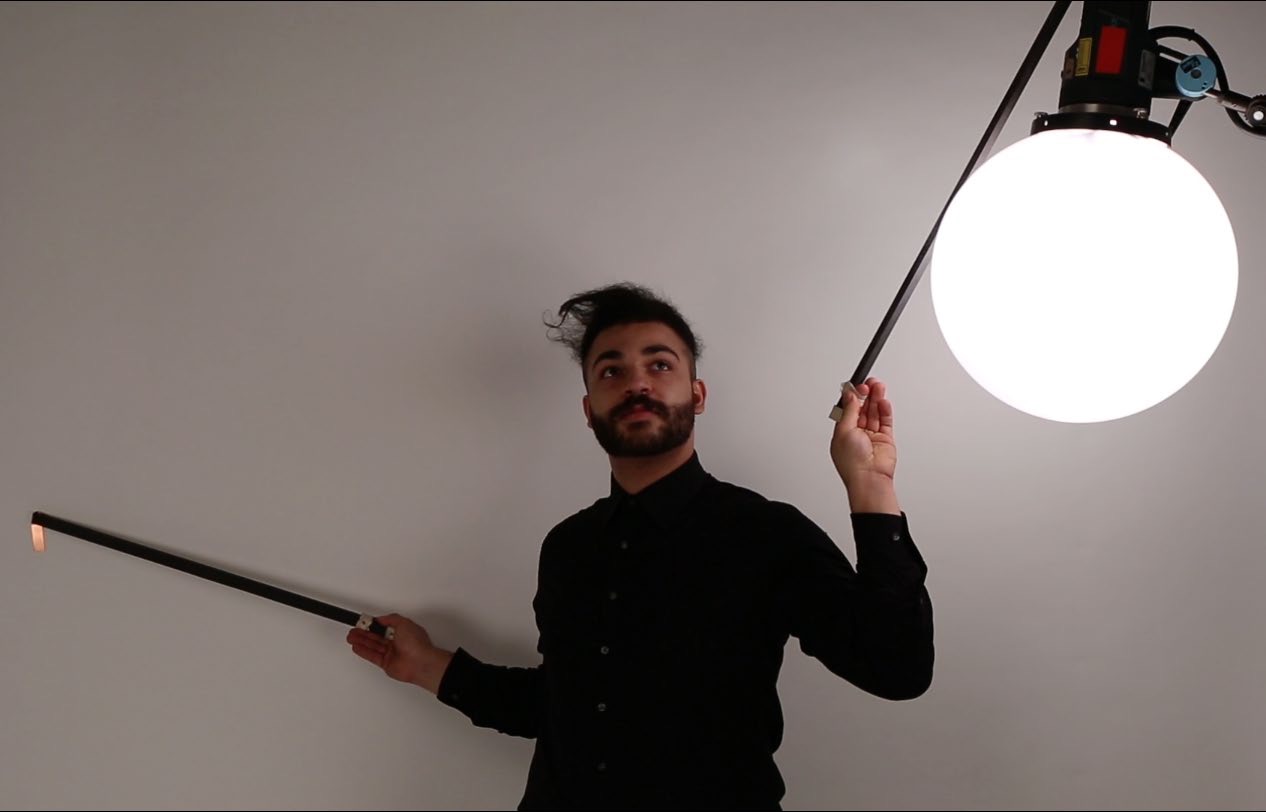 Anthropomorphie der elektronischen Welt - ein Skalierungsprojektwith Franziska Wildt - UdK Berlin 2015
Using techniques from art and performance we will investigate how the means of the production of the technologies we use everyday are reflected in the way we engage with each other, physically, psychologically and socially. We endeavour to explore the relations of scale between that of our bodies and those of the electronic level where data flows and the global industrial level where the miraculous technologies we use are produced. Following Flusser, we can attempt to elaborate „new humanisms“, cultural forms opposed the concept of “transhumanism”, which can be pertinent and effective for the extremely small and extremely large scales we are confronted with every day. Understanding our technologies anew in this way, we can imagine what other possible technicities in us can be released (and thereby new cultural forms, and practices) were the means of production to even be slightly altered. The starting points for these explorations will be the subjective and aesthetic experiences of the participants. Anthropomorphie der elektronischen Welt - ein Skalierungsprojektwith Franziska Wildt - UdK Berlin 2015
Using techniques from art and performance we will investigate how the means of the production of the technologies we use everyday are reflected in the way we engage with each other, physically, psychologically and socially. We endeavour to explore the relations of scale between that of our bodies and those of the electronic level where data flows and the global industrial level where the miraculous technologies we use are produced. Following Flusser, we can attempt to elaborate „new humanisms“, cultural forms opposed the concept of “transhumanism”, which can be pertinent and effective for the extremely small and extremely large scales we are confronted with every day. Understanding our technologies anew in this way, we can imagine what other possible technicities in us can be released (and thereby new cultural forms, and practices) were the means of production to even be slightly altered. The starting points for these explorations will be the subjective and aesthetic experiences of the participants. |
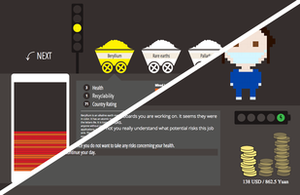 Conflict and Social Justice in the Electronics Supply Chain
with Heba Amin Elmahamly - HTW Berlin 2014-15 This project problematizes and investigates how to best visualize and relay information about the far-reaching consequences of the every day technological tools we use today. It integrates the consciousness of technological development with that of resource exploitation and links the material of our devices to migration flow, particularly on the African continent. With existing data sets as well as a crowd-sourced knowledge base, we will explore data visualization as a tool for activism. Through collaborations with local organizations and case studies, students will construct real-time data visualizations and other electronic media products which may help us understand and position ourselves politically with regard to these same media products. Conflict and Social Justice in the Electronics Supply Chain
with Heba Amin Elmahamly - HTW Berlin 2014-15 This project problematizes and investigates how to best visualize and relay information about the far-reaching consequences of the every day technological tools we use today. It integrates the consciousness of technological development with that of resource exploitation and links the material of our devices to migration flow, particularly on the African continent. With existing data sets as well as a crowd-sourced knowledge base, we will explore data visualization as a tool for activism. Through collaborations with local organizations and case studies, students will construct real-time data visualizations and other electronic media products which may help us understand and position ourselves politically with regard to these same media products. |
|
 Specul-active Data Modeling B-TU Cottbus 2018 This seminar will deal with theoretical and practical aspects of digital simulation. We will be looking at the way simulations function epistemically and heuristically in technical and scientific contexts and in the general public.
Specul-active Data Modeling B-TU Cottbus 2018 This seminar will deal with theoretical and practical aspects of digital simulation. We will be looking at the way simulations function epistemically and heuristically in technical and scientific contexts and in the general public.  Cyber-Aesthetic Methods UdK Berlin 2018 How can we develop own methodologies towards strategies for networked aesthetics with social cybernetic feedback effects available today? In the seminar, we will look at ideas, motivations and different ways of engaging with the new fluid and malleable notions of reality
Cyber-Aesthetic Methods UdK Berlin 2018 How can we develop own methodologies towards strategies for networked aesthetics with social cybernetic feedback effects available today? In the seminar, we will look at ideas, motivations and different ways of engaging with the new fluid and malleable notions of reality  Exquisite Complexity UdK Berlin 2017-18 The world is complex. The words, the images, the sounds we use to express our experience of this complexity are never quite adequate. One is pushed to generalize and simplify to get a desired reaction, rather than taking the time to convey complex impressions and thoughts more carefully and satisfactorily. But not in this seminar. In this seminar we will try to develop strategies and practices to help us patiently encounter complexity in all its lush and difficult detail. We will not shy away from slow progress, in fact we will celebrate it.
Exquisite Complexity UdK Berlin 2017-18 The world is complex. The words, the images, the sounds we use to express our experience of this complexity are never quite adequate. One is pushed to generalize and simplify to get a desired reaction, rather than taking the time to convey complex impressions and thoughts more carefully and satisfactorily. But not in this seminar. In this seminar we will try to develop strategies and practices to help us patiently encounter complexity in all its lush and difficult detail. We will not shy away from slow progress, in fact we will celebrate it. Digital Materiality Exhibition and UdK Berlin 2017 Digital technologies and processes are increasingly integrated in all aspects of our lives, they open up new realms of experience and questions about who and what we are. In this seminar we will analyze digital technologies from their material properties to help grasp what they are, how they are changing us and, perhaps how we can change them. We will reference thinkers from Aristotle and Plato through Marx, Kant, Descartes up to present day with Karen Barad, Katheryn Hayles and Bernard Stiegler. We will explore the ever diversifying, discipline-melting realms of creative digital practices, which may be art, design, propaganda, engineering, and all at once. We will discuss, research and prepare small presentations for each other, as we attempt to synthesize our understanding in texts, performances and objects.
Digital Materiality Exhibition and UdK Berlin 2017 Digital technologies and processes are increasingly integrated in all aspects of our lives, they open up new realms of experience and questions about who and what we are. In this seminar we will analyze digital technologies from their material properties to help grasp what they are, how they are changing us and, perhaps how we can change them. We will reference thinkers from Aristotle and Plato through Marx, Kant, Descartes up to present day with Karen Barad, Katheryn Hayles and Bernard Stiegler. We will explore the ever diversifying, discipline-melting realms of creative digital practices, which may be art, design, propaganda, engineering, and all at once. We will discuss, research and prepare small presentations for each other, as we attempt to synthesize our understanding in texts, performances and objects. Resistence, Insistence, Subsistencewith Franziska Wildt - UdK Berlin 2017 Kann Kunst durch die Veränderung von Sichtweisen, politische Diskurse transformieren und Menschen zusammen bringen? Dieser Workshop möchte untersuchen welche kulturellen Praktiken den Aufstieg der politischen Rechten in Deutschland und dem Rest der Welt heute etwas entgegensetzen können. Wie können wir den Erfolg von rechtem Populismus, und die Macht der kulturindustriellen Beeinflussung durch Medienplattformen wie Youtube, Facebook, Instagram etc. unterlaufen? Welche kulturellen Praktiken können die politische Handlungsfähigkeit einer, zunehmend durch elektronische Geräte atomisierten und parzellierte Gesellschaft, wieder ermöglichen?
Resistence, Insistence, Subsistencewith Franziska Wildt - UdK Berlin 2017 Kann Kunst durch die Veränderung von Sichtweisen, politische Diskurse transformieren und Menschen zusammen bringen? Dieser Workshop möchte untersuchen welche kulturellen Praktiken den Aufstieg der politischen Rechten in Deutschland und dem Rest der Welt heute etwas entgegensetzen können. Wie können wir den Erfolg von rechtem Populismus, und die Macht der kulturindustriellen Beeinflussung durch Medienplattformen wie Youtube, Facebook, Instagram etc. unterlaufen? Welche kulturellen Praktiken können die politische Handlungsfähigkeit einer, zunehmend durch elektronische Geräte atomisierten und parzellierte Gesellschaft, wieder ermöglichen? Data, Knowledge, Narrative UdK Berlin 2016-17 We look carefully at digital data, what it is made of, where it comes from, how it is produced and reproduced. We will look at our own data, others' data and data of things and processes. And we discuss and explore together how we make meaning of data and data environments, through metaphors, narratives, polemics and other cultural strategies. For hints we will look at Vilém Flusser’s notions of code, technical images, and synthetic thinking, media archaeology, net art and post-internet art, and more recent thinkers like Benjamin Bratton, N. Katherine Hayles, Elisabeth Gross and Elisabeth von Samsonow and many more.
Data, Knowledge, Narrative UdK Berlin 2016-17 We look carefully at digital data, what it is made of, where it comes from, how it is produced and reproduced. We will look at our own data, others' data and data of things and processes. And we discuss and explore together how we make meaning of data and data environments, through metaphors, narratives, polemics and other cultural strategies. For hints we will look at Vilém Flusser’s notions of code, technical images, and synthetic thinking, media archaeology, net art and post-internet art, and more recent thinkers like Benjamin Bratton, N. Katherine Hayles, Elisabeth Gross and Elisabeth von Samsonow and many more. Digital MaterialityUdK Berlin 2016 By now we know, digital things are material things. There is no software without the hardware to run it. And concepts are also material, as they can only exist in living bodies. Increasingly artists, theorists, political actors are turning their attention to persistent materiality which underlies the electronic digital world..
Digital MaterialityUdK Berlin 2016 By now we know, digital things are material things. There is no software without the hardware to run it. And concepts are also material, as they can only exist in living bodies. Increasingly artists, theorists, political actors are turning their attention to persistent materiality which underlies the electronic digital world.. A Philosophy of Photography for the Freedom Of The Migrantwith Franziska Wildt - UdK Berlin 2016 In the essay collection „The Freedom Of The Migrant“, Flusser suggests that the migrant is free. What does this mean? The freedom of the migrant, according to Flusser, is not just a negative freedom from destruction or repression, it is a positive freedom to choose one’s affiliations and relationships with others independently of borders, class and nations. He turns the stigma of the migrant experience around, describing it as the quintessential contemporary experience in a world where our homes are perforated with „visible and invisible cables“. In the light of the current revival of nationalisms in Europe, Flusser’s ideas have renewed pertinence. Photographs, videos, „technical images“ as Flusser called them, greatly influence how we perceive the condition of the migrant today. The challenge for us is to understand and criticize the discourses inscribed in the images in order to dismantle their power
A Philosophy of Photography for the Freedom Of The Migrantwith Franziska Wildt - UdK Berlin 2016 In the essay collection „The Freedom Of The Migrant“, Flusser suggests that the migrant is free. What does this mean? The freedom of the migrant, according to Flusser, is not just a negative freedom from destruction or repression, it is a positive freedom to choose one’s affiliations and relationships with others independently of borders, class and nations. He turns the stigma of the migrant experience around, describing it as the quintessential contemporary experience in a world where our homes are perforated with „visible and invisible cables“. In the light of the current revival of nationalisms in Europe, Flusser’s ideas have renewed pertinence. Photographs, videos, „technical images“ as Flusser called them, greatly influence how we perceive the condition of the migrant today. The challenge for us is to understand and criticize the discourses inscribed in the images in order to dismantle their power Digital MaterialityUdK Berlin 2015-16 Digital Art, Digital Communication, Digital Future, does it all sound old already? Increasingly artists, theorists and political actors are turning their attention to persistent materiality which underlies th electronic digital world. Theorists have begun to elaborate new- and neo-materialisms as well as post-humanist ontologies which radicallyquestion how we perceive ourselves. This is a course where we bring theory into practice and practice into theory. We start with an analysis of digital and electronic products, media, images, sounds, and investigate their material basis from various approaches including phenomenology, history, philosophy and artistic practice. Digital materials are not homogenous, rather they are made up of myriad infinitesimal variations which help us understand what they are. .
Digital MaterialityUdK Berlin 2015-16 Digital Art, Digital Communication, Digital Future, does it all sound old already? Increasingly artists, theorists and political actors are turning their attention to persistent materiality which underlies th electronic digital world. Theorists have begun to elaborate new- and neo-materialisms as well as post-humanist ontologies which radicallyquestion how we perceive ourselves. This is a course where we bring theory into practice and practice into theory. We start with an analysis of digital and electronic products, media, images, sounds, and investigate their material basis from various approaches including phenomenology, history, philosophy and artistic practice. Digital materials are not homogenous, rather they are made up of myriad infinitesimal variations which help us understand what they are. . Anthropomorphie der elektronischen Welt - ein Skalierungsprojektwith Franziska Wildt - UdK Berlin 2015
Using techniques from art and performance we will investigate how the means of the production of the technologies we use everyday are reflected in the way we engage with each other, physically, psychologically and socially. We endeavour to explore the relations of scale between that of our bodies and those of the electronic level where data flows and the global industrial level where the miraculous technologies we use are produced. Following Flusser, we can attempt to elaborate „new humanisms“, cultural forms opposed the concept of “transhumanism”, which can be pertinent and effective for the extremely small and extremely large scales we are confronted with every day. Understanding our technologies anew in this way, we can imagine what other possible technicities in us can be released (and thereby new cultural forms, and practices) were the means of production to even be slightly altered. The starting points for these explorations will be the subjective and aesthetic experiences of the participants.
Anthropomorphie der elektronischen Welt - ein Skalierungsprojektwith Franziska Wildt - UdK Berlin 2015
Using techniques from art and performance we will investigate how the means of the production of the technologies we use everyday are reflected in the way we engage with each other, physically, psychologically and socially. We endeavour to explore the relations of scale between that of our bodies and those of the electronic level where data flows and the global industrial level where the miraculous technologies we use are produced. Following Flusser, we can attempt to elaborate „new humanisms“, cultural forms opposed the concept of “transhumanism”, which can be pertinent and effective for the extremely small and extremely large scales we are confronted with every day. Understanding our technologies anew in this way, we can imagine what other possible technicities in us can be released (and thereby new cultural forms, and practices) were the means of production to even be slightly altered. The starting points for these explorations will be the subjective and aesthetic experiences of the participants. Conflict and Social Justice in the Electronics Supply Chain
with Heba Amin Elmahamly - HTW Berlin 2014-15 This project problematizes and investigates how to best visualize and relay information about the far-reaching consequences of the every day technological tools we use today. It integrates the consciousness of technological development with that of resource exploitation and links the material of our devices to migration flow, particularly on the African continent. With existing data sets as well as a crowd-sourced knowledge base, we will explore data visualization as a tool for activism. Through collaborations with local organizations and case studies, students will construct real-time data visualizations and other electronic media products which may help us understand and position ourselves politically with regard to these same media products.
Conflict and Social Justice in the Electronics Supply Chain
with Heba Amin Elmahamly - HTW Berlin 2014-15 This project problematizes and investigates how to best visualize and relay information about the far-reaching consequences of the every day technological tools we use today. It integrates the consciousness of technological development with that of resource exploitation and links the material of our devices to migration flow, particularly on the African continent. With existing data sets as well as a crowd-sourced knowledge base, we will explore data visualization as a tool for activism. Through collaborations with local organizations and case studies, students will construct real-time data visualizations and other electronic media products which may help us understand and position ourselves politically with regard to these same media products.